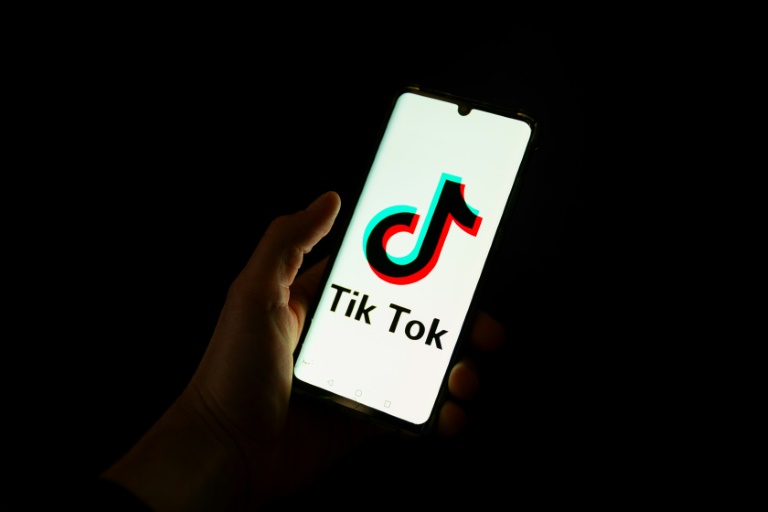Science
Trump Proposes $14 Billion TikTok Deal Amid Confusion and Concerns

President Donald Trump has announced a potential solution for TikTok’s future in the United States, proposing a deal that would see a group of investors purchase the app from its Chinese parent company, ByteDance. This announcement comes amid ongoing tensions between the U.S. and China, as the Trump administration claims that a sale is necessary to comply with U.S. law. However, significant questions remain about the feasibility and implications of this deal for American users.
The proposed sale hinges on the requirement for ByteDance to divest its U.S. operations, which would need approval from the Chinese government. Observers note that China has historically been reluctant to allow its prominent companies to be forced out of key markets, especially amid a trade war with the United States. While the Trump administration asserts that China has accepted the conditions for the sale, there has been no confirmation from Beijing. Requests for clarification from TikTok and ByteDance have not been answered.
In an executive order signed on March 15, 2024, the White House outlined a transaction that centers on key investors, including Oracle CEO Larry Ellison, a close ally of Trump. Ellison, known for his significant influence in Silicon Valley, has been involved in various partnerships with Trump, including initiatives in artificial intelligence. The investor group reportedly also includes media mogul Rupert Murdoch and his son Lachlan Murdoch, who control Fox News. Whether this involvement signals a conservative shift for TikTok, a platform that Trump has credited with helping him engage young voters, remains to be seen. Trump has denied any intention to reshape TikTok’s political orientation.
Concerns regarding the potential for increased government intervention in media and a conservative rebranding of the platform have emerged. The evolving landscape of social media has seen platforms like X (formerly Twitter) shift towards far-right politics under Elon Musk, while Meta’s Mark Zuckerberg has made moves to align with Republican interests regarding content moderation.
The financial aspects of the proposed deal raise eyebrows as well. At the White House announcement, Vice President JD Vance indicated that the deal is valued at $14 billion, significantly less than Twitter’s valuation of $44 billion when it sold. According to Bloomberg, ByteDance may retain substantial value through a licensing arrangement that could allow it to receive approximately half of the profits from the new entity, despite holding only a 20 percent stake. This situation could prompt scrutiny from lawmakers in Washington regarding compliance with U.S. regulations.
John Moolenaar, the Republican chairman of the House Foreign Affairs Committee, has expressed intent to conduct thorough oversight of the agreement, emphasizing concerns about ByteDance’s past behavior. Legal experts have noted that while the Trump administration’s plan makes broad claims about protecting U.S. national security, it lacks specific details that would substantiate those assurances.
Adding to the skepticism, Oracle already manages TikTok’s data servers as part of previous efforts to alleviate security concerns. Critics question whether the proposed deal will bring about any meaningful changes.
As discussions about TikTok’s future unfold, the implications for users and the broader social media landscape remain uncertain. With ongoing debates about content moderation and the influence of major tech companies, the outcome of this deal could have lasting effects.
-

 Education3 months ago
Education3 months agoBrandon University’s Failed $5 Million Project Sparks Oversight Review
-

 Science4 months ago
Science4 months agoMicrosoft Confirms U.S. Law Overrules Canadian Data Sovereignty
-

 Lifestyle3 months ago
Lifestyle3 months agoWinnipeg Celebrates Culinary Creativity During Le Burger Week 2025
-

 Health4 months ago
Health4 months agoMontreal’s Groupe Marcelle Leads Canadian Cosmetic Industry Growth
-

 Science4 months ago
Science4 months agoTech Innovator Amandipp Singh Transforms Hiring for Disabled
-

 Technology4 months ago
Technology4 months agoDragon Ball: Sparking! Zero Launching on Switch and Switch 2 This November
-

 Education4 months ago
Education4 months agoRed River College Launches New Programs to Address Industry Needs
-

 Technology4 months ago
Technology4 months agoGoogle Pixel 10 Pro Fold Specs Unveiled Ahead of Launch
-

 Business3 months ago
Business3 months agoRocket Lab Reports Strong Q2 2025 Revenue Growth and Future Plans
-

 Technology2 months ago
Technology2 months agoDiscord Faces Serious Security Breach Affecting Millions
-

 Education4 months ago
Education4 months agoAlberta Teachers’ Strike: Potential Impacts on Students and Families
-

 Education3 months ago
Education3 months agoNew SĆIȺNEW̱ SṮEȽIṮḴEȽ Elementary Opens in Langford for 2025/2026 Year
-

 Science4 months ago
Science4 months agoChina’s Wukong Spacesuit Sets New Standard for AI in Space
-

 Business4 months ago
Business4 months agoBNA Brewing to Open New Bowling Alley in Downtown Penticton
-

 Business4 months ago
Business4 months agoNew Estimates Reveal ChatGPT-5 Energy Use Could Soar
-

 Technology4 months ago
Technology4 months agoWorld of Warcraft Players Buzz Over 19-Quest Bee Challenge
-

 Business4 months ago
Business4 months agoDawson City Residents Rally Around Buy Canadian Movement
-

 Technology4 months ago
Technology4 months agoFuture Entertainment Launches DDoD with Gameplay Trailer Showcase
-

 Technology2 months ago
Technology2 months agoHuawei MatePad 12X Redefines Tablet Experience for Professionals
-

 Top Stories3 months ago
Top Stories3 months agoBlue Jays Shift José Berríos to Bullpen Ahead of Playoffs
-

 Technology4 months ago
Technology4 months agoGlobal Launch of Ragnarok M: Classic Set for September 3, 2025
-

 Technology4 months ago
Technology4 months agoInnovative 140W GaN Travel Adapter Combines Power and Convenience
-

 Science4 months ago
Science4 months agoXi Labs Innovates with New AI Operating System Set for 2025 Launch
-

 Technology4 months ago
Technology4 months agoNew IDR01 Smart Ring Offers Advanced Sports Tracking for $169









